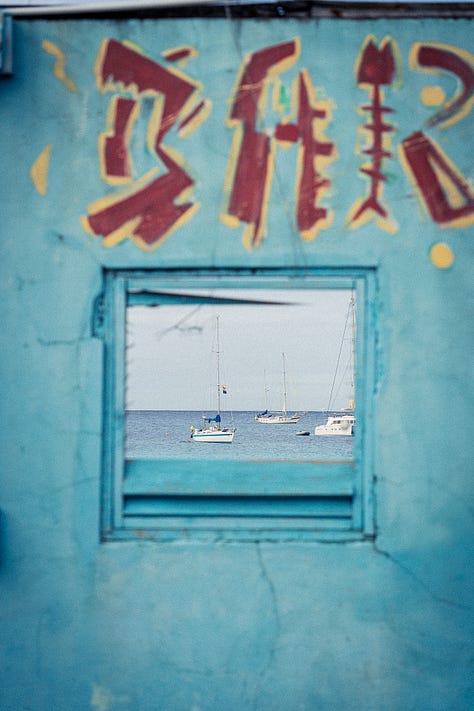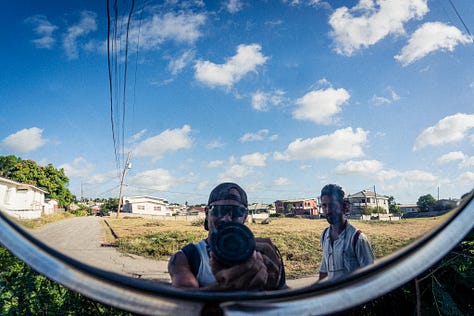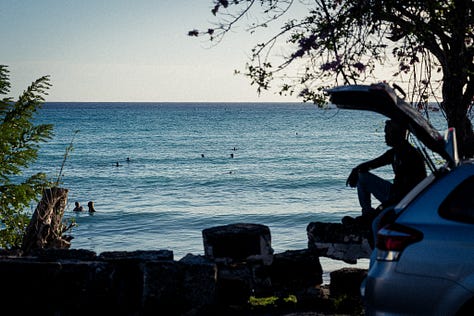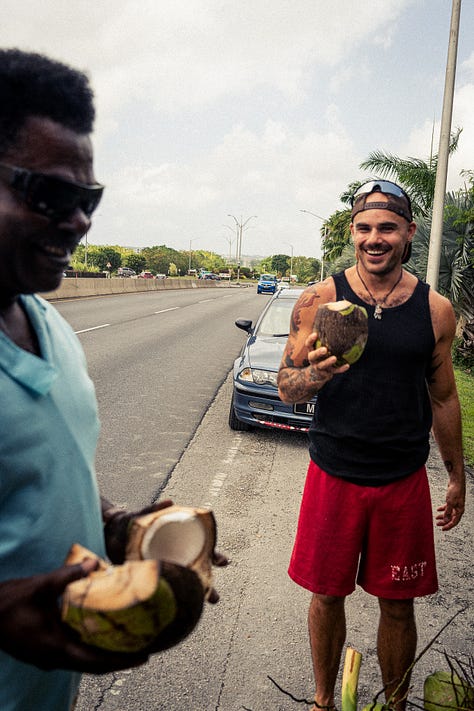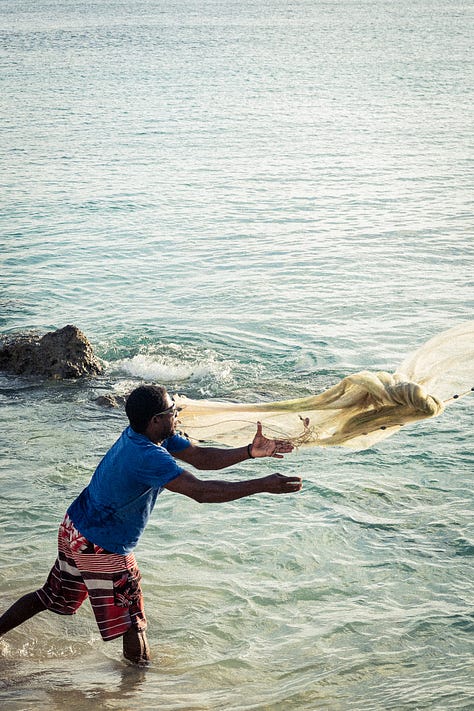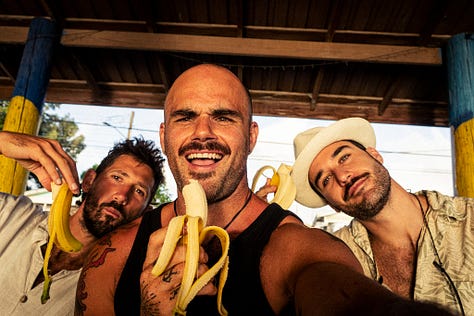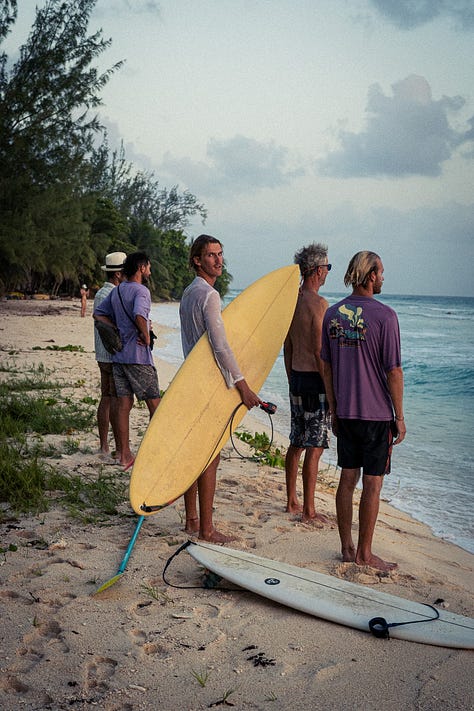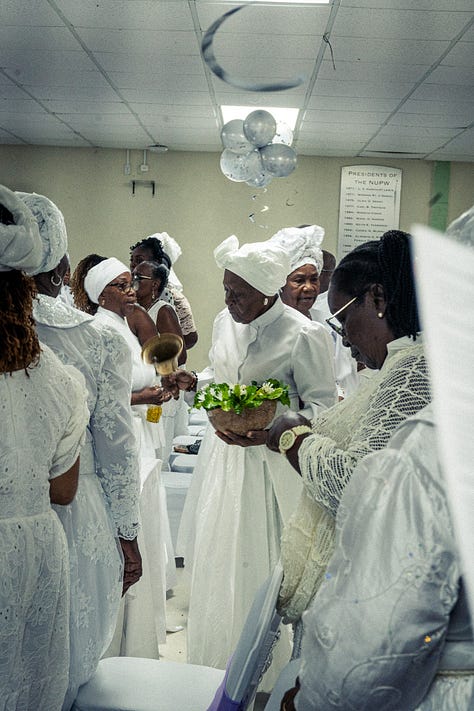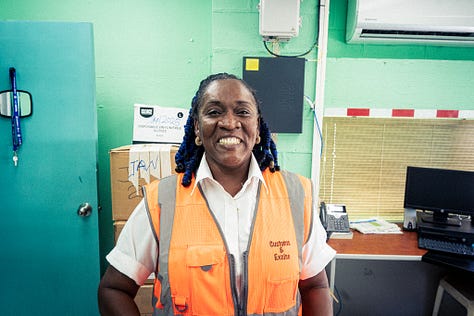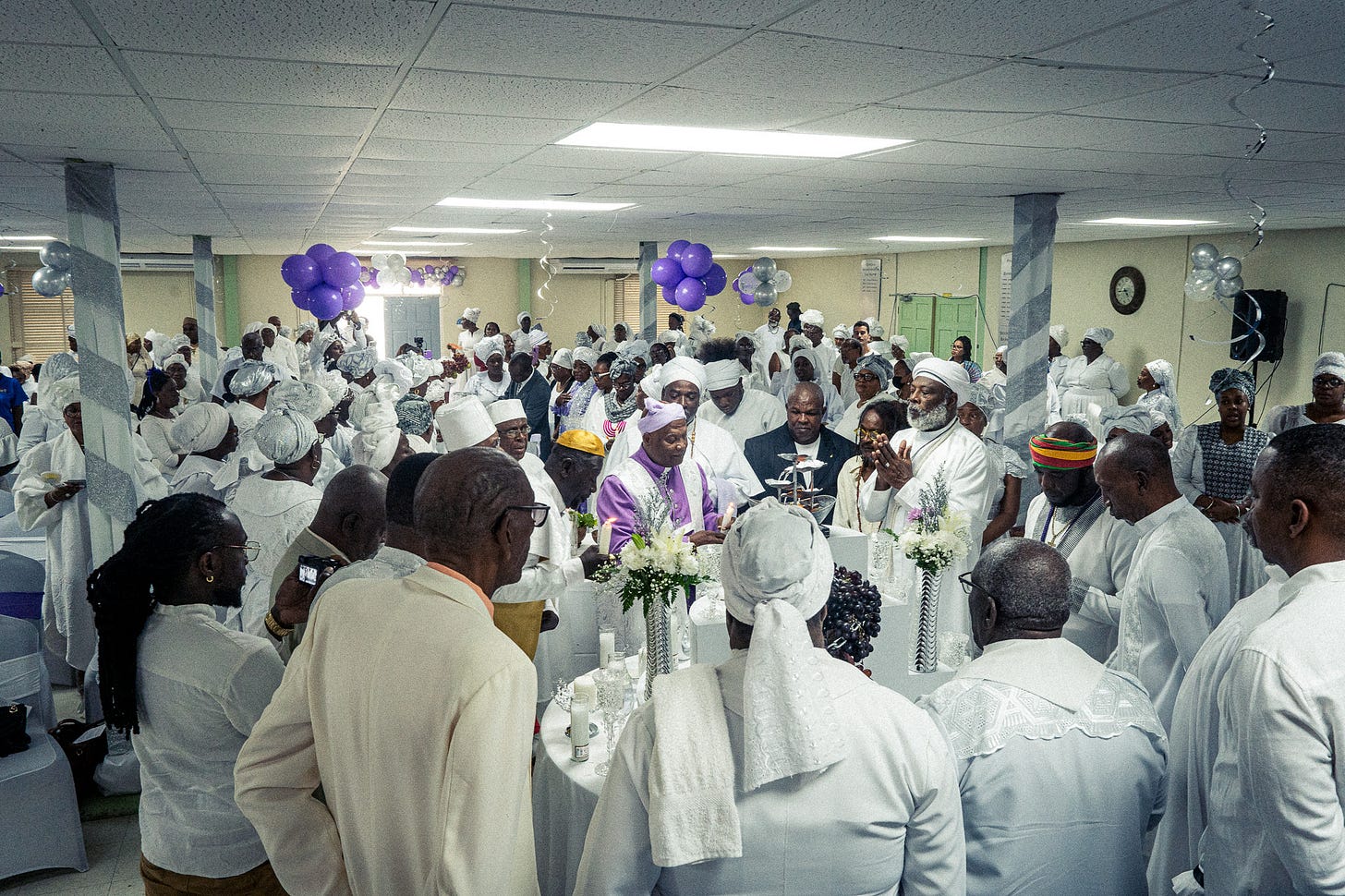What's the difference between religion and spirituality?
How my encounter with the Rastafarian and Spiritual Baptists on Barbados challenged my view on religion.
After 16 days at sea, reaching Barbados was dreamy. The island welcomed us like family. Bajans are warm, laid-back, and proud of their island. From the customs staff who showered us with recommendations, drove us around the island, and set us up with their friends, to our encounters with free-spirited Rastafarians and church-going Spiritual Baptists, we were able to explore the local faith and spiritual traditions and talk about people’s relationships to God and nature. They taught me to pay attention to earthly vibrations, communicate with my ancestors, and invoke spirits through song and dance.
Anchored up near Drill Hall beach, we befriended Pinky, a rastafarian and surfer instructor who seemed mildly disappointed at my failed attempts to ride the waves. Charmaine, the customs clearing official, was perhaps not disappointed, but still shook her head in disbelief when I admitted that I had not cleared migration before sailing out of Spain, oblivious to the idea that you need to do the paperwork even if you are travelling by sail.
My ignorance must have awoken some sort of compassion in her, cause she gave me her phone number, sent me to her favorite places on the island, and made sure we were well taken care of by her friends Kelly and Joy from the Spiritual Baptist community—an Afro-Caribbean church where we, after four hours of dancing, singing, and well-wishes left the birthday celebration of the parish Bishop with a few days worth of Bajan supper.
On board Falkor, Jorge (who spent some days with me on the island before leaving for Argentina), Toño (who returned from his Christmas celebrations in Spain), and I effusively discussed whether Church religions are merely power structures created to assert control, or something more. I’m increasingly leaning towards the “something more” after witnessing the communal effort that the Spiritual Baptists had put into the surprise birthday party of their leader. It felt like something more than just respect for authority: a collective search for an ethics of the good life, perhaps. Or maybe a space for communion among members as well as with the divine.
Pinky later agreed with Jorge and Toño—the church is spiritually corrupted, and as a self-proclaimed anarchist but captain of Falkor, my hypothesis that religion can be more than one thing did not gain ground.
